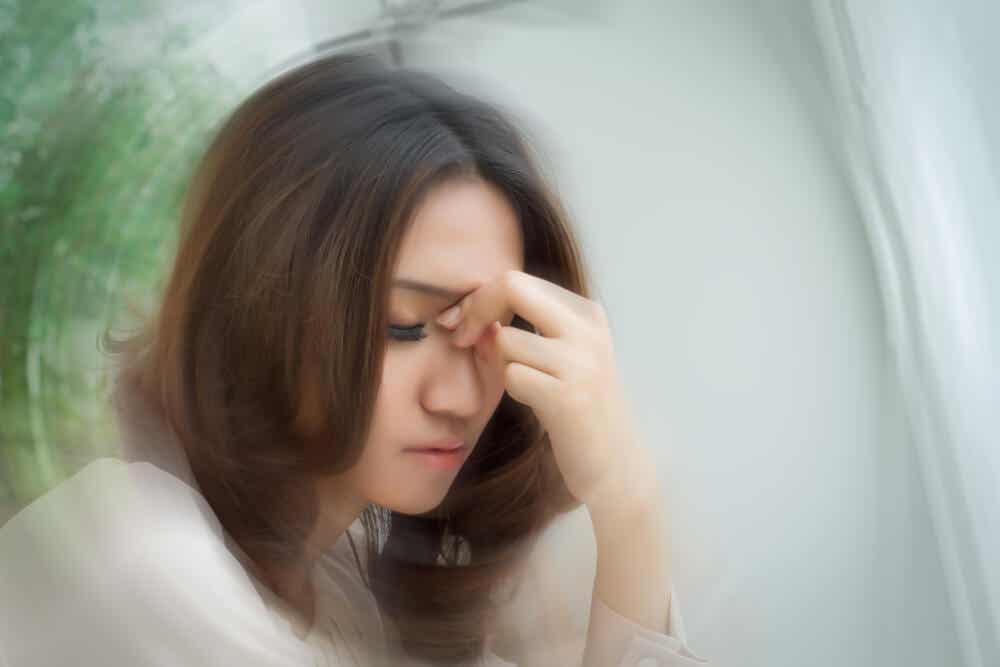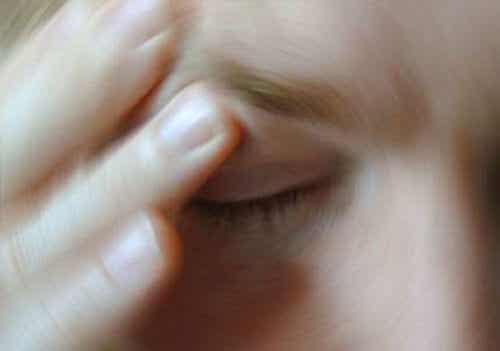Dizziness When Getting Up: What Causes It?


Written and verified by the doctor Leonardo Biolatto
Dizziness when getting up is a very common problem, especially in older people. According to estimates, at least 20% of people between the ages of 18 and 65 have experienced this annoying sensation at some time.
Although it’s a situation that often causes concern, the truth is that most of the time, dizziness when getting up doesn’t pose any serious health problem. In any case, the best thing to do is to visit a doctor so that they can determine the steps to follow.
Dizziness when getting up is more frequent in the elderly, as well as among people with other chronic diseases, such as hypotension. Even in these cases, dizziness should rarely be a cause for alarm.
The main cause of dizziness when standing up

What happens in these cases is that small calcium particles are released in the inner ear. These particles cause the brain to receive confusing signals about the position of the body. This is when dizziness occurs.
Typically, this type of dizziness comes and goes intermittently over long periods of time. Likewise, it’s also usually experienced when turning the neck and in all situations in which the movements lead to a change in the position of the ears.
Read also: What Are the Symptoms of Vertigo?
Orthostatic hypotension: Another common cause
Another common cause of dizziness when you get up is orthostatic hypotension, also known as postural hypotension. When this is the origin of the problem, the sensation most often remains for several minutes or even hours.
This problem’s related to low blood pressure and becomes more evident when a person sits up. Sometimes it occurs occasionally. It may be caused by dehydration or by having spent too much time resting in bed, for example. In that case, it doesn’t merit further attention.
If it becomes recurrent, remains for a long time, and not only gives rise to dizziness but also fainting, the matter may be more serious. It’s very common for chronic orthostatic hypotension to be the symptom of another health problem.
Other possible origins of dizziness when getting up

- Ear problems. Several diseases of the ear lead to dizziness. The most common is Ménière’s disease, in which vertigo lasts for hours and is accompanied by deafness and noises in one ear, and vestibular neuritis, with very intense vertigo that usually lasts several days.
- Use of several medications or polymedication. Sometimes, the interaction between several medications causes this type of dizziness, especially in the elderly.
- Panic attack. One of the symptoms of a panic attack is the feeling of instability when walking, which also occurs many times when getting up. In fact, it’s sometimes experienced while standing still.
- Other causes. Less frequently, the cause of this type of dizziness may be a stroke. This is the sudden blockage of a cerebral blood vessel, its rupture, or both.
You may be interested in: What is Quaternary Prevention?
What to keep in mind
If the dizziness when getting up consists of an isolated episode or occurs only very rarely, there’s probably nothing to worry about. On the other hand, if it’s very intense and occurs frequently, you’ll need to consult a physician to evaluate the situation.
If besides feeling dizzy when you get up you also experience other symptoms like coordination problems, problems walking, fainting, or if the dizziness occurs after a fall, it’s best to see a doctor as soon as possible. The same applies to those who, in addition to vertigo, have black or bloody stools.
All cited sources were thoroughly reviewed by our team to ensure their quality, reliability, currency, and validity. The bibliography of this article was considered reliable and of academic or scientific accuracy.
- Suarez, J., Pineda, R., Medina, F., & Jiménez, S. (2014). Hipotensión ortostática en el adulto mayor: Frecuencia y factores asociados. Revista Medica Herediana, 25(1), 30-36.
- Peñafort, F. Desmayo (Síncope). Una historia con múltiples finales.
- Escobar Pico, E. K. (2016). Entrenamiento del Equilibrio y la Propiocepción en las Personas que Padecen Mareo de Origen no Específico (Bachelor’s thesis, Universidad Técnica de Ambato-Facultad de Ciencias de la Salud-Carrera Terapia Física).
- Neuhauser HK. The epidemiology of dizziness and vertigo. Handb Clin Neurol. 2016;137:67-82.
- Post RE, Dickerson LM. Dizziness: a diagnostic approach. Am Fam Physician. 2010 Aug 15;82(4):361-8, 369.
- Muncie HL, Sirmans SM, James E. Dizziness: Approach to Evaluation and Management. Am Fam Physician. 2017 Feb 1;95(3):154-162.
This text is provided for informational purposes only and does not replace consultation with a professional. If in doubt, consult your specialist.








